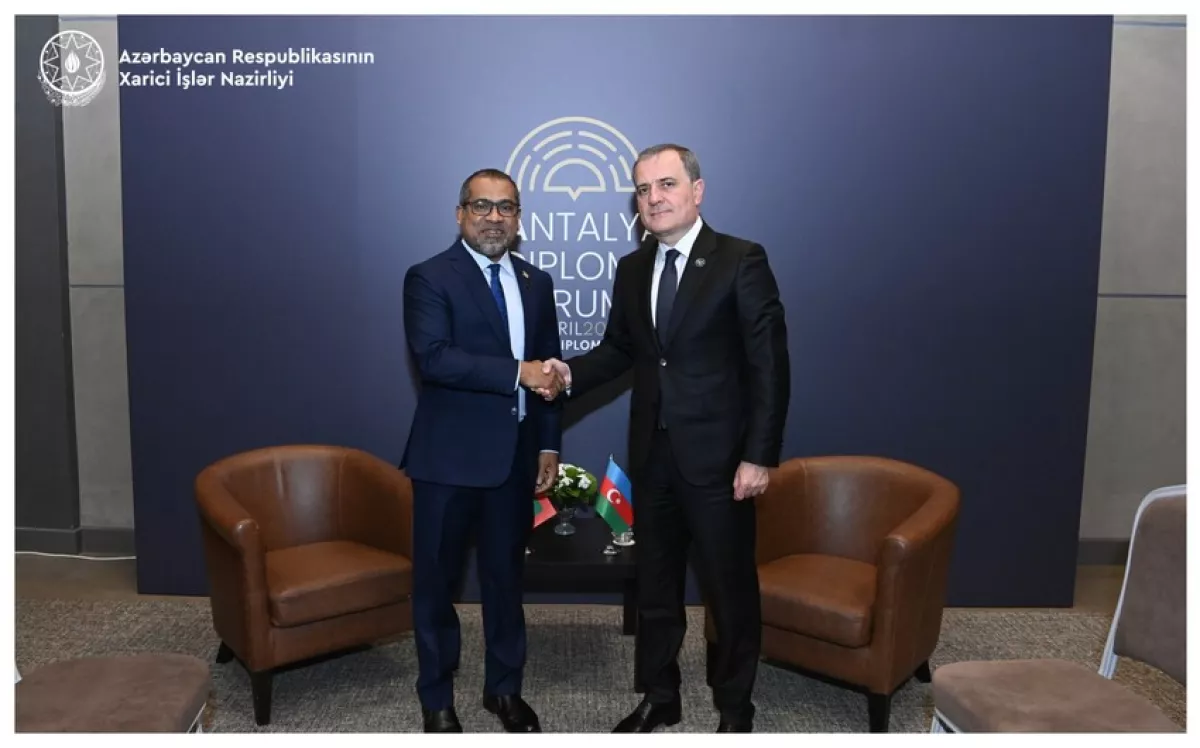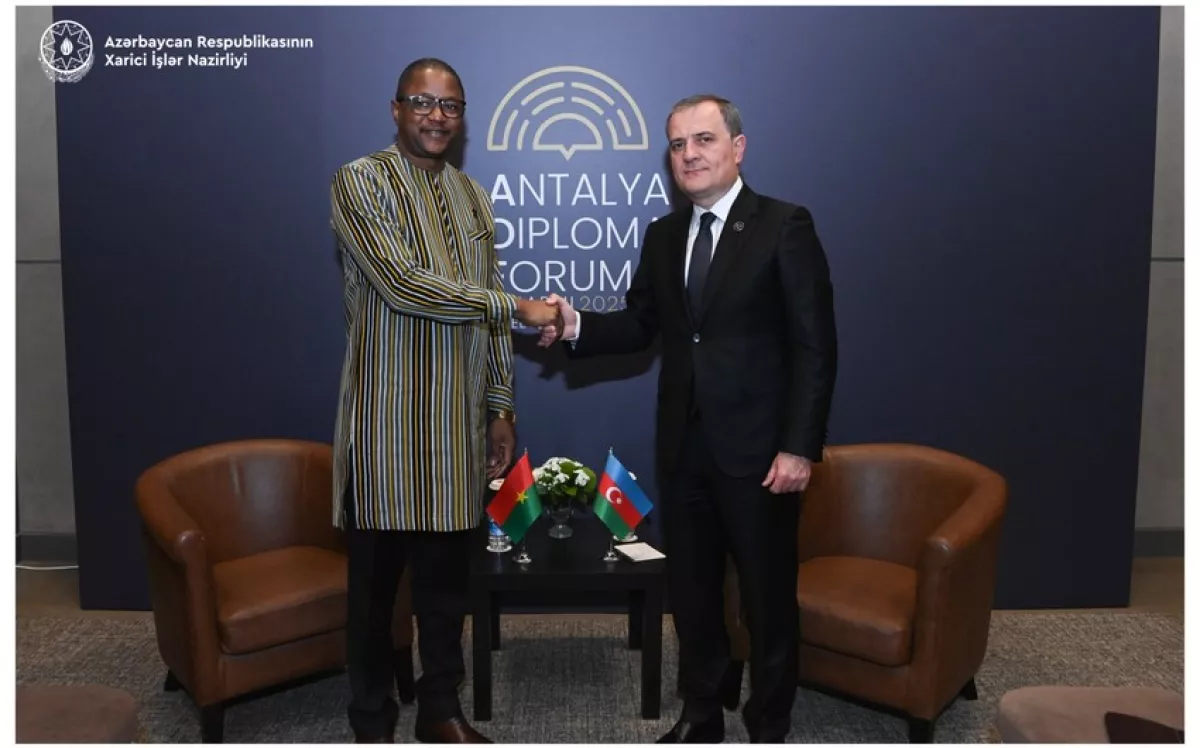Azerbaijani FM leads high-level talks at Antalya Diplomacy Forum
Azerbaijani Foreign Minister Jeyhun Bayramov has held a series of high-level bilateral meetings with foreign counterparts during the 4th Antalya Diplomacy Forum, underscoring Azerbaijan’s commitment to expanding international cooperation and strengthening multilateral engagement.
Kicking off the forum’s diplomatic exchanges, Bayramov met with Venezuela’s Foreign Minister Yván Gil Pinto, the Azerbaijani Foreign Ministry told Caliber.Az.
The ministers discussed a broad spectrum of cooperation opportunities, ranging from economics and trade to energy security and cultural exchange. The talks also touched on bilateral and multilateral collaboration, as well as regional and global security issues. Both sides praised the growing political ties between Azerbaijan and Venezuela, grounded in mutual respect and solidarity.
They reaffirmed their shared commitment to deepening this partnership through sustained political dialogue and high-level exchanges. Particular attention was given to expanding cooperation in the economic and energy sectors, tourism, science, and education, including the implementation of academic and professional exchange programmes.
The two ministers also highlighted their countries’ alignment and mutual support within international platforms such as the United Nations and the Non-Aligned Movement, stressing the importance of continued coordination on multilateral fronts.

Maintaining the momentum of regional engagement, Bayramov held talks with Abdulla Khalil, Foreign Minister of the Republic of Maldives. Their discussion centered on cooperation in trade, investment, tourism, and humanitarian sectors. Both sides emphasized the role of political consultations in advancing bilateral relations.
The ministers reviewed progress made during a recent Azerbaijani government delegation’s visit to the Maldives and celebrated the launch of direct flights between the two nations last year — a key step toward enhancing tourism and people-to-people connections. They also reaffirmed mutual support within global institutions, including the UN, the Organisation of Islamic Cooperation (OIC), and the Non-Aligned Movement.

Continuing his diplomatic outreach, Bayramov met with Burkina Faso’s Minister of Foreign Affairs and Regional Cooperation, Karamoko Jean-Marie Traoré. In a statement on social media platform X, Bayramov emphasized the untapped potential for bilateral and multilateral cooperation, the importance of reciprocal visits, and the need to enhance collaboration within international bodies like the UN, OIC, and the Non-Aligned Movement.
Bayramov reiterated Azerbaijan’s commitment to building stronger partnerships with African nations, including Burkina Faso, and shared information about Azerbaijan’s scholarship programmes for international students — including those from member states of the Non-Aligned Movement.
In his final meeting at the forum, Bayramov sat down with Rwanda’s Foreign Minister, Olivier Nduhungirehe. The two ministers explored opportunities to strengthen cooperation in trade, investment, agriculture, renewable energy, and infrastructure development. They also exchanged views on ways to deepen coordination within multilateral frameworks such as the UN and the Non-Aligned Movement.
The Antalya Diplomacy Forum is a significant international event designed to foster dialogue among global leaders and diplomats. The forum is held annually in the Turkish resort city of Antalya. It is organised under the patronage of Turkish President Recep Tayyip Erdogan and the Turkish Foreign Ministry. This year’s forum gathered over 20 heads of state and government, more than 50 foreign ministers, over 70 ministers, and nearly 60 senior representatives from international organisations.
In total, the event saw approximately 4,000 participants, including students. More than 50 sessions, covering a diverse array of topics, were held. The sessions included regional issues in the Middle East, Asia-Pacific, Africa, and Latin America, as well as pressing global challenges such as climate change, counterterrorism, humanitarian aid, digitisation, food security, and artificial intelligence.
By Naila Huseynova








